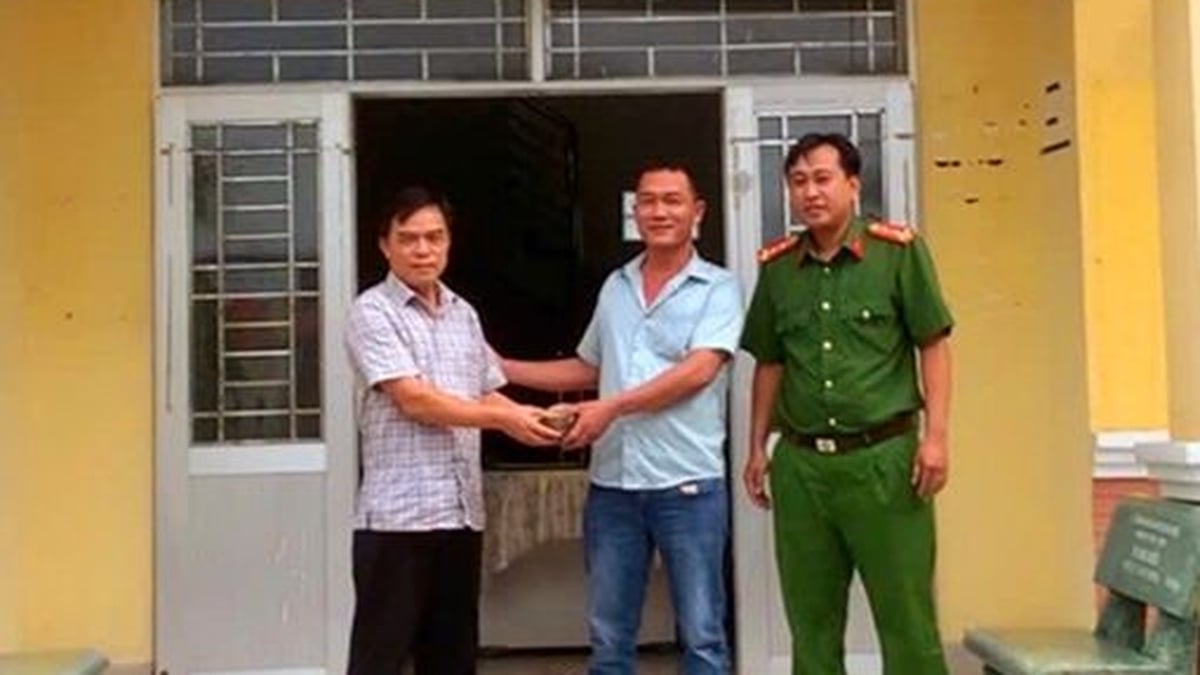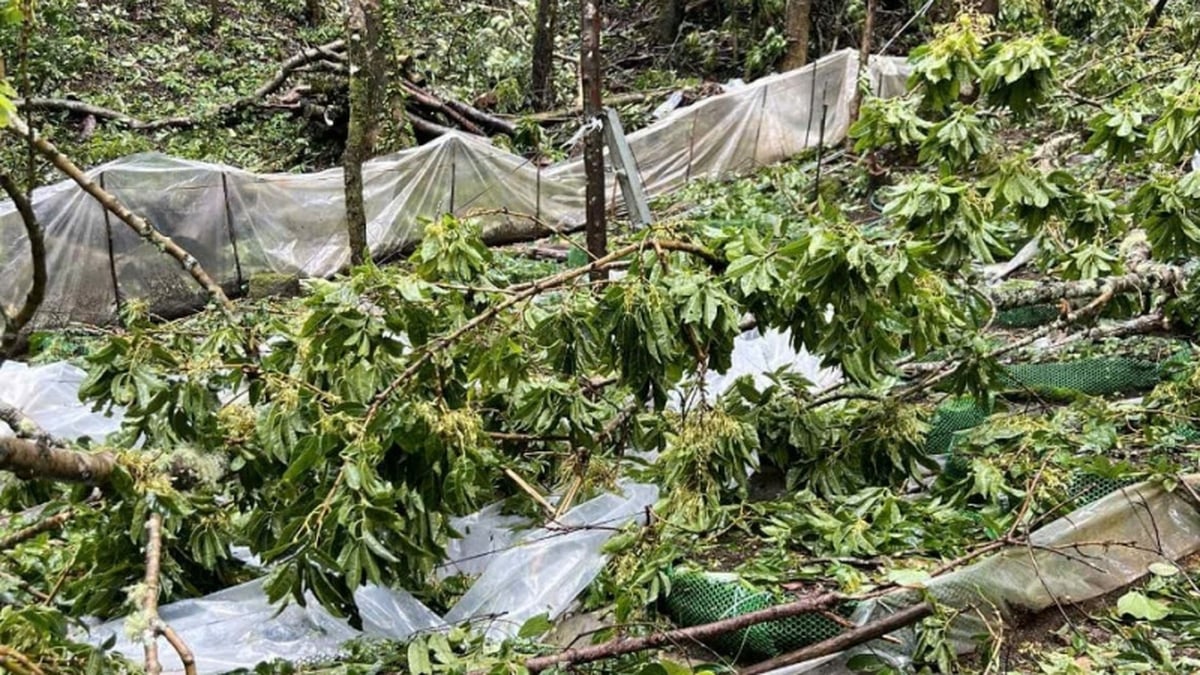These regulations, if legalized, will greatly impact real estate transactions.
Why pay by bank?
Recently, when discussing some controversial issues in the draft Law on Real Estate Business (amended), many National Assembly deputies proposed that when amending the law this time, the State should introduce a policy requiring non-cash payments for real estate transactions, ensuring the goal of preventing corruption.

According to current regulations, it is not required that real estate transactions be paid through banks.
That is, transactions of sale, transfer or lease between individuals but of a business nature must also be paid through the bank, not just transactions between enterprises, project investors and buyers.
Current regulations do not require real estate transactions to be paid through banks. This, according to delegates, has led to tax evasion, negativity, and corruption in transactions.
In the US, there are no restrictions on the form of payment for real estate. However, if a property is purchased using cash of $10,000 or more, the seller must declare this to the regulatory agencies. This helps the regulatory agencies understand the source of the money, which can serve as a basis for currency investigations when necessary.
At the same time, US banks are communicating information to help detect cases of depositors evading the law and dividing the money into smaller amounts to deposit in banks at different branches.
Dr. Nguyen Tri Hieu
According to economic expert, Dr. Nguyen Tri Hieu, cash is now freely traded, many people bring suitcases of cash to buy real estate without being controlled. No one knows where that money comes from, whether it is legal or illegal.
"Many people have cash from legitimate business activities. But there are also many sources of cash from illegal activities such as corruption, drug trafficking, gambling...
"Dirty" money is used to invest in real estate, then a new source of money is collected from the buyer. Thanks to that, the "dirty" money is "laundered" into legal "clean" money," Mr. Hieu said, agreeing with the proposal to add regulations that real estate transactions must be transferred through banks.
According to Mr. Hieu, when making payments for real estate transactions through banks, the monetary security agency can trace the origin and flow of money, and detect money laundering in unusual transactions. Even "dirty" money may not be spent if the bank requires a declaration of origin when transferring money to the bank.
"This regulation being legalized will slow down real estate business activities. But that is a social cost, the price to pay for a clean economy. For legal money, this regulation is not a concern, but those who own illegal money will be worried," said Mr. Hieu.
The chairman of a real estate company said that many individuals and businesses may not agree with the regulation that transactions must go through banks because it directly affects their interests. But that is the general trend of the world .
Dr. Tran Xuan Luong, Real Estate major, National Economics University, agreed with the above proposal, but still expressed concern: "Currently, there is no market data for land and real estate, and regulations on real estate payments through banks can still be circumvented. Therefore, data is needed to see land price fluctuations, whether buyers are laundering money or not. From there, the State has appropriate tax or prevention plans."
How much deposit is appropriate?
Regarding the proposal to deposit for contract signing, Dr. Luong said that the real estate market is in great need of capital, so it is possible to base on legal grounds such as land use rights and basic designs to allow investors to receive deposits. Allowing early deposits also helps reduce housing prices, because if resources from home buyers cannot be mobilized, investors must borrow interest, and those costs are included in the selling price, causing the selling price to increase.
In reality, the sale of "green rice" is common nowadays. If it is legalized, there will be more mechanisms to protect home buyers, reducing risks compared to the previous "underground" sales. And a deposit of 10% or less is reasonable, not too much money for the value of a house.
Meanwhile, expert Hoang Tung, Institute for Research on Law and Development Policy, said that deposit regulations for real estate business are unnecessary. Because the Civil Code has clearly and specifically regulated the concept of deposit, deposited assets, subjects, forms of deposit, and handling of deposited assets. Therefore, there is no need to add separate deposit regulations for real estate business.
In reality, disputes over deposits are few, mainly due to the phenomenon of "hanging" red books when Ho Chi Minh City has 81,000 apartments, Hanoi has 30,000 apartments. The cause comes from investors who built wrong designs and have not fulfilled financial obligations.
Therefore, instead of deposit regulations, according to Mr. Tung, the Law on Real Estate Business needs to have stricter regulations on the conditions for approving projects that are eligible for business.
"In addition, it is necessary to adjust the maximum amount that investors collect to increase responsibility. Currently, investors collect 95% of the apartment value before handing over the apartment ownership certificate. The high collection rate leads to the situation of abandoning home buyers. If only a maximum of 70% is allowed to be collected, the investor's responsibility will have to increase to collect the remaining amount," said Mr. Tung.
During the discussion session at the National Assembly on the draft Law on Real Estate Business (amended) on the morning of October 31, many delegates proposed adding a regulation that all real estate transactions must go through banks to combat corruption and tax evasion.
In addition, the National Assembly Standing Committee proposed two options on deposits:
Option 1: Real estate project investors are only allowed to collect deposits from customers when the houses and construction works have met all conditions for being put into business and have conducted transactions in accordance with the provisions of this Law.
Option 2: Real estate project investors may only collect deposits according to the agreement with customers when the project has a basic design appraised by a state agency and the investor has one of the documents on land use rights specified in Clause 2, Article 24 of this Law.
The deposit agreement must clearly state the selling price, lease-purchase price of the house or construction work. The maximum deposit amount is according to Government regulations but must not exceed 10% of the selling price, lease-purchase price of the house or construction work.
The draft law is expected to be passed by the National Assembly on November 27.
Source baogiaothong
Source


































































































Comment (0)